Andrew Moses, composer
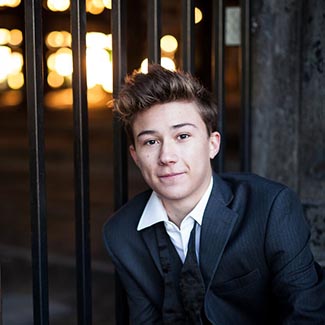
 Andrew Moses (17) is a composer and clarinetist from Los Angeles. Hailed at age 13 as “an artist to watch” and “a musician of enormous talent”, his compositions have been performed, premiered, and read by groups such as the Los Angeles Philharmonic, the Calder Quartet, and the Argus Quartet. Andrew has been a Composer Fellow with LA Phil since 2013, and continues in 2016-2017 as an LA Phil Senior Fellow. His chamber works have been performed in concert as part of the 2015 Hear Now Festival of New Music in Los Angeles, by wild Up at the Regent Theater as part of the LA Phil’s “Next on Grand” Festival, as part of the Yellow Barn Young Artists Program in Vermont, and in readings by the Los Angeles Master Chorale and Los Angeles Philharmonic Chamber Ensembles. The LA Phil premiered two short symphonic works of his at Walt Disney Concert Hall in the past two seasons. Upcoming projects include a commission by the LA Phil for their groundbreaking Green Umbrella new music series to be premiered in October and conducted by John Adams. He has participated in masterclasses with composers such as Kaija Saariaho, John Corigliano, Magnus Lindberg, Christopher Theofanidis, and Esa-Pekka Salonen; and he is currently a student of Andrew Norman. As a clarinet student of Dr. Margaret Thornhill, Andrew made his solo New York City recital debut last year at the home of Charles and Susan Avery Fischer as part of iPalpiti Musicales. He has been featured twice on From the Top on NPR and is a recipient of From the Top’s Jack Kent Cooke Young Artist Award. He was a winner of the 2014 Young Musicians Foundation National Debut Concerto Competition, the Torrance Symphony Orchestra Concerto Competition, the Beverly Hills Auditions, and the Midland National Young Artist Competition. Andrew has thrice participated in the Yellow Barn Young Artists Festival in Vermont; and he is a Junior of iPalpiti Artists International. Andrew has appeared as a concerto soloist with several area orchestras, having performed as concerto soloist in the Walt Disney Concert Hall at the age of 11. Committed to serving the community through Arts Leadership Initiatives, the California Senate joined in recognizing his contributions to the local arts and presented Andrew with the “Making a Difference Award”. In his spare time, he enjoys taekwondo (he is a third degree black belt), poetry, and his community of faith.
Andrew Moses (17) is a composer and clarinetist from Los Angeles. Hailed at age 13 as “an artist to watch” and “a musician of enormous talent”, his compositions have been performed, premiered, and read by groups such as the Los Angeles Philharmonic, the Calder Quartet, and the Argus Quartet. Andrew has been a Composer Fellow with LA Phil since 2013, and continues in 2016-2017 as an LA Phil Senior Fellow. His chamber works have been performed in concert as part of the 2015 Hear Now Festival of New Music in Los Angeles, by wild Up at the Regent Theater as part of the LA Phil’s “Next on Grand” Festival, as part of the Yellow Barn Young Artists Program in Vermont, and in readings by the Los Angeles Master Chorale and Los Angeles Philharmonic Chamber Ensembles. The LA Phil premiered two short symphonic works of his at Walt Disney Concert Hall in the past two seasons. Upcoming projects include a commission by the LA Phil for their groundbreaking Green Umbrella new music series to be premiered in October and conducted by John Adams. He has participated in masterclasses with composers such as Kaija Saariaho, John Corigliano, Magnus Lindberg, Christopher Theofanidis, and Esa-Pekka Salonen; and he is currently a student of Andrew Norman. As a clarinet student of Dr. Margaret Thornhill, Andrew made his solo New York City recital debut last year at the home of Charles and Susan Avery Fischer as part of iPalpiti Musicales. He has been featured twice on From the Top on NPR and is a recipient of From the Top’s Jack Kent Cooke Young Artist Award. He was a winner of the 2014 Young Musicians Foundation National Debut Concerto Competition, the Torrance Symphony Orchestra Concerto Competition, the Beverly Hills Auditions, and the Midland National Young Artist Competition. Andrew has thrice participated in the Yellow Barn Young Artists Festival in Vermont; and he is a Junior of iPalpiti Artists International. Andrew has appeared as a concerto soloist with several area orchestras, having performed as concerto soloist in the Walt Disney Concert Hall at the age of 11. Committed to serving the community through Arts Leadership Initiatives, the California Senate joined in recognizing his contributions to the local arts and presented Andrew with the “Making a Difference Award”. In his spare time, he enjoys taekwondo (he is a third degree black belt), poetry, and his community of faith.
Pauline Oliveros
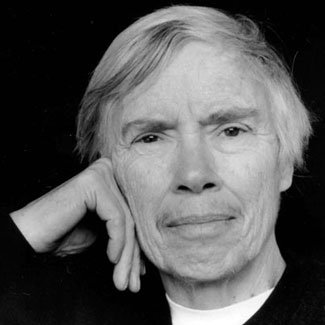
 Pauline Oliveros, composer, performer and humanitarian is an important pioneer in American Music. Acclaimed internationally, for four decades she has explored sound — forging new ground for herself and others.
Pauline Oliveros, composer, performer and humanitarian is an important pioneer in American Music. Acclaimed internationally, for four decades she has explored sound — forging new ground for herself and others.
Through improvisation, electronic music, ritual, teaching and meditation she has created a body of work with such breadth of vision that it profoundly effects those who experience it and eludes many who try to write about it.
Claudia Rankine, poet
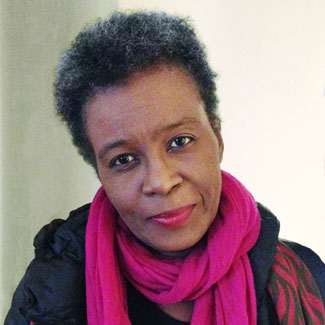
 Claudia Rankine is the author of five collections of poetry including Citizen: An American Lyric and Don’t Let Me Be Lonely; two plays including Provenance of Beauty: A South Bronx Travelogue; numerous video collaborations, and is the editor of several anthologies including The Racial Imaginary: Writers on Race in the Life of the Mind.For her book Citizen, Rankine won both the PEN Open Book Award and the Pen Literary Award, the NAACP Award, and the National Book Critics Circle Award for Poetry. Citizen was the first book ever to be named a finalist in both the poetry and criticism categories and was a finalist for the National Book Award. Citizen also holds the distinction of being the only poetry book to be a New York Times bestseller in the nonfiction category.
Claudia Rankine is the author of five collections of poetry including Citizen: An American Lyric and Don’t Let Me Be Lonely; two plays including Provenance of Beauty: A South Bronx Travelogue; numerous video collaborations, and is the editor of several anthologies including The Racial Imaginary: Writers on Race in the Life of the Mind.For her book Citizen, Rankine won both the PEN Open Book Award and the Pen Literary Award, the NAACP Award, and the National Book Critics Circle Award for Poetry. Citizen was the first book ever to be named a finalist in both the poetry and criticism categories and was a finalist for the National Book Award. Citizen also holds the distinction of being the only poetry book to be a New York Times bestseller in the nonfiction category.
Among her numerous awards and honors, Rankine is the recipient of the Poets & Writers’ Jackson Poetry Prize and fellowships from the Lannan Foundation and the National Endowment of the Arts. She lives in California and is the Aerol Arnold Chair in the University of Southern California English Department.
Kaija Saariaho
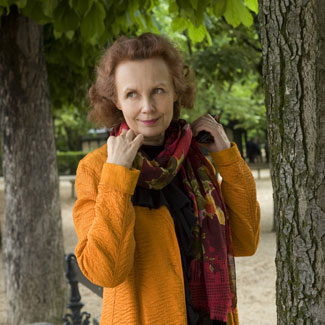
 Kaija Saariaho is a prominent member of a group of Finnish composers and performers who are now, in mid-career, making a worldwide impact. Born in Helsinki in 1952, she studied at the Sibelius Academy there with the pioneering modernist Paavo Heininen and, with Magnus Lindberg and others, she founded the progressive ‘Ears Open’ group. She continued her studies in Freiburg with Brian Ferneyhough and Klaus Huber, at the Darmstadt summer courses, and, from 1982, at the IRCAM research institute in Paris – the city which has been most of the time her home ever since.
Kaija Saariaho is a prominent member of a group of Finnish composers and performers who are now, in mid-career, making a worldwide impact. Born in Helsinki in 1952, she studied at the Sibelius Academy there with the pioneering modernist Paavo Heininen and, with Magnus Lindberg and others, she founded the progressive ‘Ears Open’ group. She continued her studies in Freiburg with Brian Ferneyhough and Klaus Huber, at the Darmstadt summer courses, and, from 1982, at the IRCAM research institute in Paris – the city which has been most of the time her home ever since.
Christine Southworth, composer
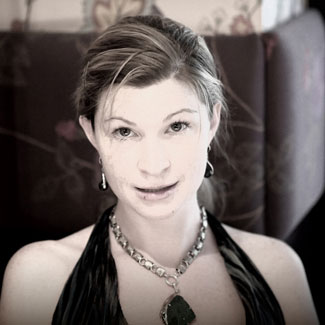
 Christine Southworth (b. 1978) is a composer and video artist based in Lexington, Massachusetts, dedicated to creating art born from a cross-pollination of sonic and visual ideas. Inspired by intersections of technology and art, nature and machines, and musics from cultures around the world, her music employs sounds from man and nature, from Van de Graaff Generators to honeybees, Balinese gamelan to seismic data from volcanoes.
Christine Southworth (b. 1978) is a composer and video artist based in Lexington, Massachusetts, dedicated to creating art born from a cross-pollination of sonic and visual ideas. Inspired by intersections of technology and art, nature and machines, and musics from cultures around the world, her music employs sounds from man and nature, from Van de Graaff Generators to honeybees, Balinese gamelan to seismic data from volcanoes.
Southworth received a B.S. from MIT in 2002 in mathematics and an M.A. in Computer Music & Multimedia Composition from Brown University in 2006. In 2003 she co-founded Ensemble Robot, a collaborative of artists and engineers that design and build musical robots. She is the general manager of the MIT-based Gamelan Galak Tika, and has composed several pieces for the group and performed at venues including Lincoln Center, Carnegie Hall, EMPAC, the Cleveland Museum of Art, several Bang on a Can Marathons, and the Bali International Arts Festival.
Ethan Treiman, composer
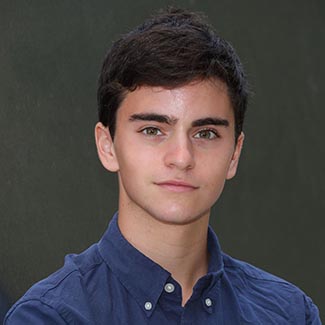
 Ethan Treiman (17) is a junior at Crossroads School for the Arts and Sciences in Santa Monica, California. He is looking forward to beginning his two year fellowship with the Los Angeles Philharmonic Composer Fellowship Program in fall, 2015. At Crossroads, he has taken courses in music theory taught by Mary Ann Cummins and Richard Grayson. Ethan is interested in musical theater and drama and has acted in several theater shows at Crossroads. He has performed with Crossroads’ 21st Street Singers Choir. Ethan draws inspiration from the music of George Gershwin, Claude Debussy, and Alberto Ginastera, along with John Williams and Stephen Sondheim. Ethan enjoys running Cross Country and Track, and hopes to one day compose music for stage and film.
Ethan Treiman (17) is a junior at Crossroads School for the Arts and Sciences in Santa Monica, California. He is looking forward to beginning his two year fellowship with the Los Angeles Philharmonic Composer Fellowship Program in fall, 2015. At Crossroads, he has taken courses in music theory taught by Mary Ann Cummins and Richard Grayson. Ethan is interested in musical theater and drama and has acted in several theater shows at Crossroads. He has performed with Crossroads’ 21st Street Singers Choir. Ethan draws inspiration from the music of George Gershwin, Claude Debussy, and Alberto Ginastera, along with John Williams and Stephen Sondheim. Ethan enjoys running Cross Country and Track, and hopes to one day compose music for stage and film.
Mark Applebaum
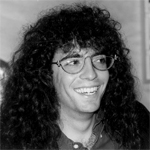 Mark Applebaum (b. 1967, Chicago) is Associate Professor of Composition and Theory at Stanford University where he served as John Philip Coghlan Fellow and received the 2003 Walter J. Gores Award for excellence in teaching. He received his Ph.D. in composition from the University of California at San Diego where he studied principally with Brian Ferneyhough. His solo, chamber, choral, orchestral, operatic, and electroacoustic work has been performed throughout the United States, Europe, Africa, and Asia.
Mark Applebaum (b. 1967, Chicago) is Associate Professor of Composition and Theory at Stanford University where he served as John Philip Coghlan Fellow and received the 2003 Walter J. Gores Award for excellence in teaching. He received his Ph.D. in composition from the University of California at San Diego where he studied principally with Brian Ferneyhough. His solo, chamber, choral, orchestral, operatic, and electroacoustic work has been performed throughout the United States, Europe, Africa, and Asia.
Carlos Chávez
 Born 13 June 1899 in Mexico City, Carlos Chávez was a renowned composer, conductor, and educator whose distinctive, often highly percussive music synthesized elements of Mexican, Indian, and Spanish-Mexican influence. A prolific writer of music and music criticism, Chávez’s oeuvre includes five ballets, seven symphonies, four concertos, a cantata and opera, and innumerable pieces for voice, piano, and chamber ensemble; he wrote two books (of which Toward A New Music: Music and Electricity became a major contribution and fundamental document of new musical thought) and more than 200 articles on music.
Born 13 June 1899 in Mexico City, Carlos Chávez was a renowned composer, conductor, and educator whose distinctive, often highly percussive music synthesized elements of Mexican, Indian, and Spanish-Mexican influence. A prolific writer of music and music criticism, Chávez’s oeuvre includes five ballets, seven symphonies, four concertos, a cantata and opera, and innumerable pieces for voice, piano, and chamber ensemble; he wrote two books (of which Toward A New Music: Music and Electricity became a major contribution and fundamental document of new musical thought) and more than 200 articles on music.
Mario Diaz de Leon
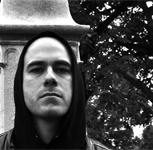 Mario Diaz de Leon has written a body of modern classical works focused on acoustic / electronic hybrids, often expressed as hypnotic walls and gestures of shimmering sound. His influences include the composers Scelsi, Ligeti, Dumitrescu, and Xenakis, free improvisation, underground metal, a wide range of electronic music, and noise / industrial music.
Mario Diaz de Leon has written a body of modern classical works focused on acoustic / electronic hybrids, often expressed as hypnotic walls and gestures of shimmering sound. His influences include the composers Scelsi, Ligeti, Dumitrescu, and Xenakis, free improvisation, underground metal, a wide range of electronic music, and noise / industrial music.
Du Yun
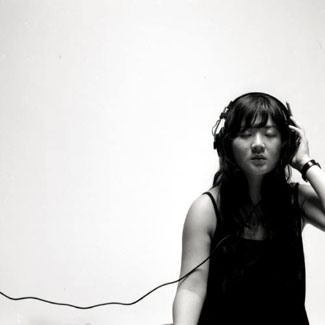
 Born and raised in Shanghai, China, currently based in NYC, Du Yun is a composer, multi-instrumentalist and performance artist. Her music exists at an artistic crossroads of orchestral, chamber music, theatre, opera, orchestral, cabaret, storytelling, pop music, visual arts and noise.
Born and raised in Shanghai, China, currently based in NYC, Du Yun is a composer, multi-instrumentalist and performance artist. Her music exists at an artistic crossroads of orchestral, chamber music, theatre, opera, orchestral, cabaret, storytelling, pop music, visual arts and noise.
Hailed by The New York Times as a leading figure in China’s new generation of composers, Du Yun’s music is championed by some of today’s finest performing artists, ensembles, orchestras and organizations.
Tan Dun
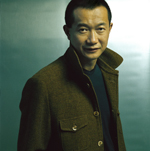 The conceptual and multifaceted composer/conductor Tan Dun has made an indelible mark on the world’s music scene with a creative repertoire that spans the boundaries of classical music, multimedia performance, and Eastern and Western traditions. A winner of today’s most prestigious honors including the Grammy Award, Oscar/Academy Award, Grawemeyer Award for classical composition and Musical America’s Composer of The Year, Bach Prize of the City of Hamburg and Moscow’s Shostakovich Award, Tan Dun’s music has been played throughout the world by leading orchestras, opera houses, international festivals, and on the radio and television.
The conceptual and multifaceted composer/conductor Tan Dun has made an indelible mark on the world’s music scene with a creative repertoire that spans the boundaries of classical music, multimedia performance, and Eastern and Western traditions. A winner of today’s most prestigious honors including the Grammy Award, Oscar/Academy Award, Grawemeyer Award for classical composition and Musical America’s Composer of The Year, Bach Prize of the City of Hamburg and Moscow’s Shostakovich Award, Tan Dun’s music has been played throughout the world by leading orchestras, opera houses, international festivals, and on the radio and television.
Julio Estrada
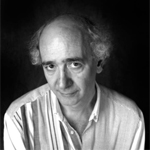 Born in Mexico City in 1943, Julio Estrada’s family was exiled from Spain in 1941. A composer, theoretician, historian, pedagogue, and interpreter, he began his musical studies in Mexico (1953-65), where he studied composition with Julián Orbón. In Paris (1965-69) he studied with Nadia Boulanger, Messiaen and attended courses and lectures of Xenakis. In Germany he studied with Stockhausen (1968) and with Ligeti (1972). He earned a Ph. D. in Musicology at Strasbourg University (1990- 1994).
Born in Mexico City in 1943, Julio Estrada’s family was exiled from Spain in 1941. A composer, theoretician, historian, pedagogue, and interpreter, he began his musical studies in Mexico (1953-65), where he studied composition with Julián Orbón. In Paris (1965-69) he studied with Nadia Boulanger, Messiaen and attended courses and lectures of Xenakis. In Germany he studied with Stockhausen (1968) and with Ligeti (1972). He earned a Ph. D. in Musicology at Strasbourg University (1990- 1994).
Mohammed Fairouz
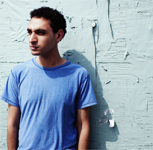 Mohammed Fairouz, born in 1985, is one of the most frequently performed, commissioned, and recorded composers of his generation. Hailed by The New York Times as “an important new artistic voice” and by BBC World News as “one of the most talented composers of his generation,” Fairouz integrates Middle-Eastern modes into Western structures, to deeply expressive effect. His large-scale works, including four symphonies and an opera, engage major geopolitical and philosophical themes with persuasive craft and a marked seriousness of purpose.
Mohammed Fairouz, born in 1985, is one of the most frequently performed, commissioned, and recorded composers of his generation. Hailed by The New York Times as “an important new artistic voice” and by BBC World News as “one of the most talented composers of his generation,” Fairouz integrates Middle-Eastern modes into Western structures, to deeply expressive effect. His large-scale works, including four symphonies and an opera, engage major geopolitical and philosophical themes with persuasive craft and a marked seriousness of purpose.
Suzanne Farrin
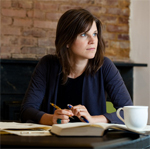 Suzanne Farrin’s music explores the interior worlds of instruments and the visceral potentialities of sound. Her music has been performed by some of the great musicians of today on stages across Europe and North and South America. Tim Page, the former classical music critic of the Washington Post wrote: “If you can imagine the dense, perfumed chords of Messiaen’s piano music combined with the clangorous, insistent, near-pictorial tone-clusters of Frederic Rzewski’s Winnsboro Cotton Mill Blues, you will have some idea of what Farrin’s work sounds like. Yet it transcends its derivations to leave the distinct impression of its own.”
Suzanne Farrin’s music explores the interior worlds of instruments and the visceral potentialities of sound. Her music has been performed by some of the great musicians of today on stages across Europe and North and South America. Tim Page, the former classical music critic of the Washington Post wrote: “If you can imagine the dense, perfumed chords of Messiaen’s piano music combined with the clangorous, insistent, near-pictorial tone-clusters of Frederic Rzewski’s Winnsboro Cotton Mill Blues, you will have some idea of what Farrin’s work sounds like. Yet it transcends its derivations to leave the distinct impression of its own.”
Morton Feldman
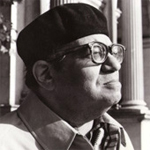 Morton Feldman was born in New York in 1926 and died there in 1987. Just like Cage, a close friend, he was an American composer – an American artist – an American in the true sense of the word.
Morton Feldman was born in New York in 1926 and died there in 1987. Just like Cage, a close friend, he was an American composer – an American artist – an American in the true sense of the word.
He identified himself by differentiating his views on composition from those of his colleagues in Europe. He was proud to be an American because he was convinced that it enabled him the freedom, unparalleled in Europe, to work unfettered by tradition.
Gabriela Lena Frank
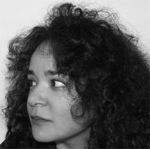 Identity has always been at the center of Gabriela Lena Frank’s music. Born in Berkeley, California, to a mother of mixed Peruvian/Chinese ancestry and a father of Lithuanian/Jewish descent, Frank explores her multicultural heritage most ardently through her compositions. Inspired by the works of Bela Bartók and Alberto Ginastera, Frank is something of a musical anthropologist. She has traveled extensively throughout South America and her pieces reflect and refract her studies of Latin American folklore, incorporating poetry, mythology, and native musical styles into a western classical framework that is uniquely her own.
Identity has always been at the center of Gabriela Lena Frank’s music. Born in Berkeley, California, to a mother of mixed Peruvian/Chinese ancestry and a father of Lithuanian/Jewish descent, Frank explores her multicultural heritage most ardently through her compositions. Inspired by the works of Bela Bartók and Alberto Ginastera, Frank is something of a musical anthropologist. She has traveled extensively throughout South America and her pieces reflect and refract her studies of Latin American folklore, incorporating poetry, mythology, and native musical styles into a western classical framework that is uniquely her own.
Alberto Ginastera
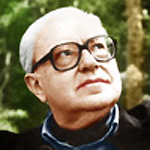 Alberto Ginastera was the leading Argentinian composer of the twentieth century, as important in giving the Argentinian folk heritage a voice in art music as Bartók was in Hungary. Ginastera was born in Buenos Aires on 11 April 1916. He studied musical privately as a child, later enrolling at the National Conservatoire of Music in his home city. His first compositions date from his early youth; he was 22 when his Piezas infantiles for piano won first prize in a competition.
Alberto Ginastera was the leading Argentinian composer of the twentieth century, as important in giving the Argentinian folk heritage a voice in art music as Bartók was in Hungary. Ginastera was born in Buenos Aires on 11 April 1916. He studied musical privately as a child, later enrolling at the National Conservatoire of Music in his home city. His first compositions date from his early youth; he was 22 when his Piezas infantiles for piano won first prize in a competition.
Vinko Globokar
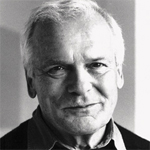 From 13 to 21 years of age Vinko Globokar lived in Ljubljana (Slovenia), where he made his debut as a jazz musician. He subsequently studied trombone at the National Conservatory in Paris (diploma in trombone and chamber music). He studied composition and conducting with René Leibowitz, counterpoint with André Hodeir, and continued his studies with Luciano Berio.
From 13 to 21 years of age Vinko Globokar lived in Ljubljana (Slovenia), where he made his debut as a jazz musician. He subsequently studied trombone at the National Conservatory in Paris (diploma in trombone and chamber music). He studied composition and conducting with René Leibowitz, counterpoint with André Hodeir, and continued his studies with Luciano Berio.
Osvaldo Golijov
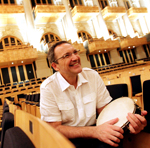 Osvaldo Golijov grew up in an Eastern European Jewish household in La Plata, Argentina. Born to a piano teacher mother and physician father, Golijov was raised surrounded by classical chamber music, Jewish liturgical and klezmer music, and the new tango of Astor Piazzolla. After studying piano at the local conservatory and composition with Gerardo Gandini he moved to Israel in 1983, where he studied with Mark Kopytman at the Jerusalem Rubin Academy and immersed himself in the colliding musical traditions of that city.
Osvaldo Golijov grew up in an Eastern European Jewish household in La Plata, Argentina. Born to a piano teacher mother and physician father, Golijov was raised surrounded by classical chamber music, Jewish liturgical and klezmer music, and the new tango of Astor Piazzolla. After studying piano at the local conservatory and composition with Gerardo Gandini he moved to Israel in 1983, where he studied with Mark Kopytman at the Jerusalem Rubin Academy and immersed himself in the colliding musical traditions of that city.
Michael Gordon
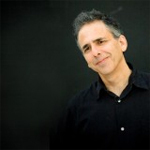 Michael Gordon’s music merges subtle rhythmic invention with incredible power embodying, in the words of The New Yorker‘s Alex Ross, “the fury of punk rock, the nervous brilliance of free jazz and the intransigence of classical modernism.”
Michael Gordon’s music merges subtle rhythmic invention with incredible power embodying, in the words of The New Yorker‘s Alex Ross, “the fury of punk rock, the nervous brilliance of free jazz and the intransigence of classical modernism.”
Over the past 25 years, Gordon has produced a strikingly diverse body of work, ranging from large-scale pieces for high-energy ensembles to major orchestral commissions to works conceived specifically for the recording studio. Transcending categorization, this music represents the collision of mysterious introspection and brutal directness.
Lei Liang
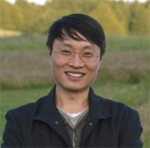 Heralded as “one of the most exciting voices in New Music” (The Wire), Lei Liang (梁雷) is a Chinese-born American composer whose works have been described as “hauntingly beautiful and sonically colorful” by The New York Times.
Heralded as “one of the most exciting voices in New Music” (The Wire), Lei Liang (梁雷) is a Chinese-born American composer whose works have been described as “hauntingly beautiful and sonically colorful” by The New York Times.
Winner of the 2011 Rome Prize, Lei Liang is the recipient of a Guggenheim Fellowship and an Aaron Copland Award. He was commissioned by the New York Philharmonic and Alan Gilbert for the inaugural concert of the CONTACT! new music series.
Olivier Messiaen
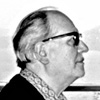 Born in 1908 in Avignon into a literary family (his father, Pierre Messiaen, was a translator and his mother, Cécile Sauvage, a poet), Olivier Messiaen was marked by the idea of language. He first devised his own language (his book Technique of My Musical Language was completed in 1943) and based it on the modality that, as a child, he had discovered in Debussy, and that he later developed at the Paris Conservatory with Paul Dukas (composition), Maurice Emmanuel (history of music) and Marcel Dupré (organ). He then created his own poetic language, from which all his vocal works issue.
Born in 1908 in Avignon into a literary family (his father, Pierre Messiaen, was a translator and his mother, Cécile Sauvage, a poet), Olivier Messiaen was marked by the idea of language. He first devised his own language (his book Technique of My Musical Language was completed in 1943) and based it on the modality that, as a child, he had discovered in Debussy, and that he later developed at the Paris Conservatory with Paul Dukas (composition), Maurice Emmanuel (history of music) and Marcel Dupré (organ). He then created his own poetic language, from which all his vocal works issue.
John Luther Adams
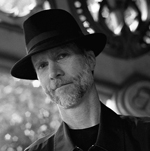 Called “one of the most original musical thinkers of the new century” (Alex Ross, The New Yorker), John Luther Adams is a composer whose life and work are deeply rooted in the natural world.
Called “one of the most original musical thinkers of the new century” (Alex Ross, The New Yorker), John Luther Adams is a composer whose life and work are deeply rooted in the natural world.
Adams composes for orchestra, chamber ensembles, percussion and electronic media, and his music is recorded on Cold Blue, New World, Mode, Cantaloupe, and New Albion.
Timo Andres, pianist/composer
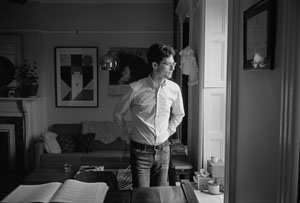
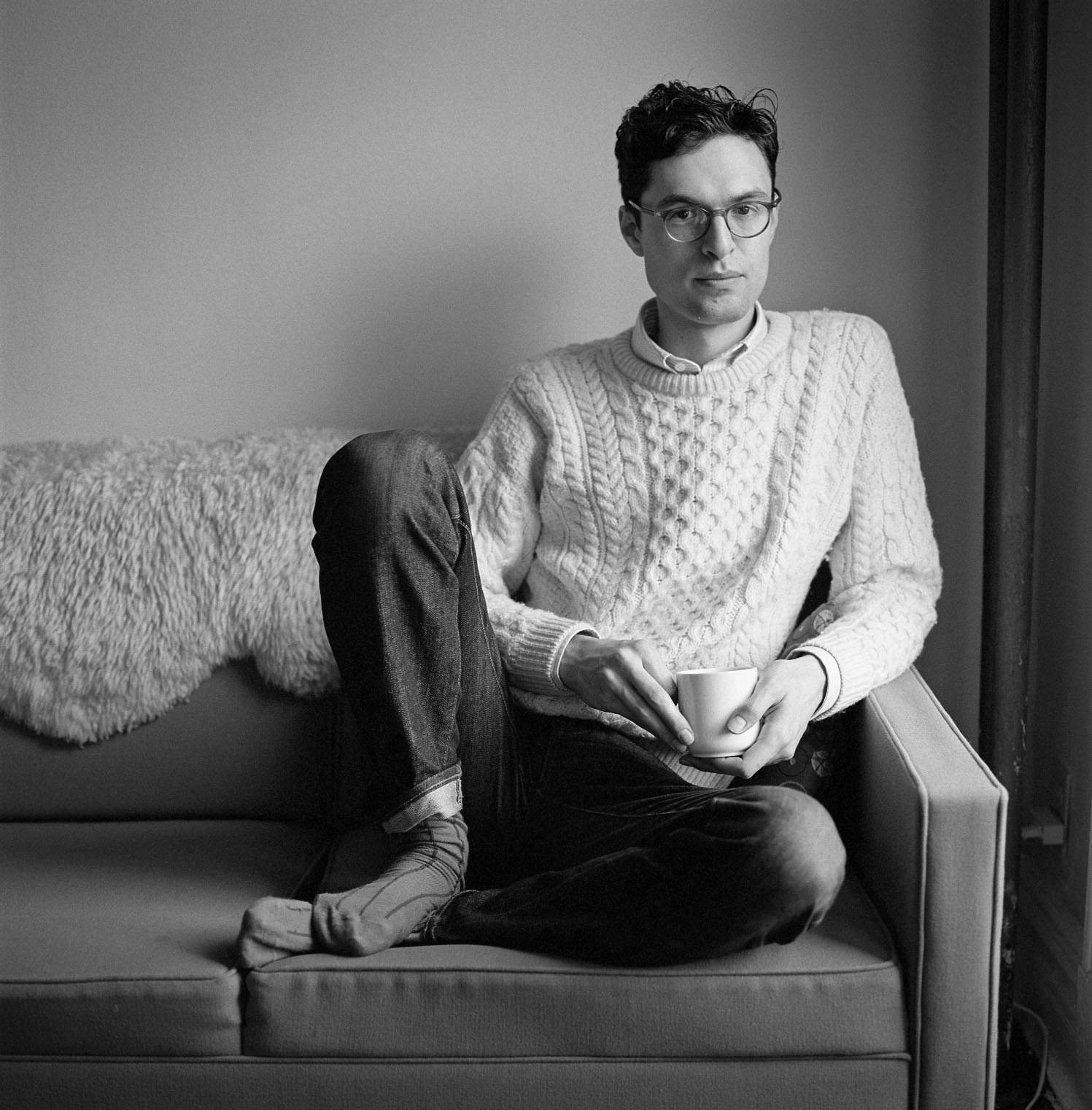 Timo Andres (b. 1985, Palo Alto, CA) is a composer and pianist who grew up in rural Connecticut and now lives in Brooklyn, NY. His début album, Shy and Mighty, which features ten interrelated pieces for two pianos performed by himself and pianist David Kaplan, was released by Nonesuch Records in May 2010 to immediate critical acclaim. Of the disc, Alex Ross wrote in The New Yorker that Shy and Mighty “achieves an unhurried grandeur that has rarely been felt in American music since John Adams came on the scene… more mighty than shy, [Andres] sounds like himself.”
Timo Andres (b. 1985, Palo Alto, CA) is a composer and pianist who grew up in rural Connecticut and now lives in Brooklyn, NY. His début album, Shy and Mighty, which features ten interrelated pieces for two pianos performed by himself and pianist David Kaplan, was released by Nonesuch Records in May 2010 to immediate critical acclaim. Of the disc, Alex Ross wrote in The New Yorker that Shy and Mighty “achieves an unhurried grandeur that has rarely been felt in American music since John Adams came on the scene… more mighty than shy, [Andres] sounds like himself.”
Uri Caine, pianist/composer
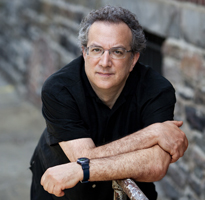 Uri Caine was born in Philadelphia and began studying piano with Bernard Peiffer. He played in bands led by Philly Joe Jones, Hank Mobley,Johnny Coles, Mickey Roker, Odean Pope, Jymmie Merritt, Bootsie Barnes and Grover Washington. He attended the University of Pennsylvania and studied music composition with George Rochberg and George Crumb. Caine has recorded 22 cds as a leader. His most recent cd is a jazz trio, Siren, (Winter and Winter 2011) with John Hebert on bass and Ben Perowsky on drums.
Uri Caine was born in Philadelphia and began studying piano with Bernard Peiffer. He played in bands led by Philly Joe Jones, Hank Mobley,Johnny Coles, Mickey Roker, Odean Pope, Jymmie Merritt, Bootsie Barnes and Grover Washington. He attended the University of Pennsylvania and studied music composition with George Rochberg and George Crumb. Caine has recorded 22 cds as a leader. His most recent cd is a jazz trio, Siren, (Winter and Winter 2011) with John Hebert on bass and Ben Perowsky on drums.

